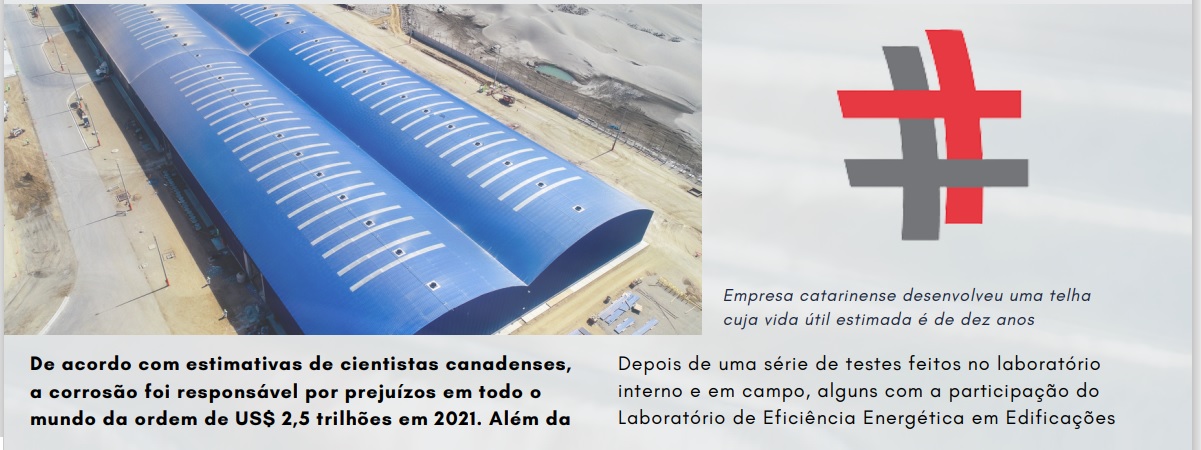

Composites increases the resistance of tiles against corrosion
According to estimates by Canadian scientists, corrosion was responsible for worldwide losses of US$ 2.5 trillion in 2021. In addition to marine corrosion, many industrial operations emit gases that end up damaging various types of metallic structures. In relation to tiles, however, there is a solution that not only solves the problem, but also offers additional advantages, such as better control of room temperature. These are composite tiles, a material that combines polymers and fiberglass.
“Although they are used abroad in very sophisticated applications, such as parts for space shuttles, trains and luxury vehicles, in Brazil composite materials are associated with products of dubious quality. However, if manufactured according to technical standards, they offer much more benefits than metal or wood, and this is clearly the case with tiles,” comments Cyrus Muchalski, general manager of Planefibra, a company from Santa Catarina specializing in solutions for lighting and ventilation.
Aware of the behavior of composites – light and extremely robust, they can even be formulated with resins resistant to the propagation of flames –, Planefibra decided to invest in the production of opaque tiles for corrosive environments, after consolidating itself in the market as a supplier of translucent tiles made with the same material.
“One of the main characteristics of composites is corrosion resistance, so much so that boat hulls and chemical tanks are made with this combination of polymers and fibers. So, we decided to include all this differential in a product that we already manufactured, but until then with a focus only on coverage associated with the gain in luminosity,” explains the general manager of Planefibra.
After a series of tests carried out in the Planefibra laboratory and in the field, some with the participation of the Laboratory of Energy Efficiency in Buildings (LabLEE), of the Federal University of Santa Catarina (USFC), the company started to manufacture opaque roof tiles for industrial applications, such as fertilizer factories, warehouses that store chemical products and port facilities.
“Our direct competitors are galvalume steel and fiber cement tiles. In addition to being able to develop much lighter products, in the color and to the extent that the customer wants, composite tiles have a useful life up to five times longer, which gives much more security not only to construction companies, but also to shed operators,” says Muchalski.
A fertilizer manufacturer, Yara Brasil was the first customer for Planefibra’s opaque tiles – it installed 9,877 m² of the product in its sheds, replacing fiber cement tiles. “Next, we supply the Port Terminal of Salaverry, in Peru”.
Planefibra’s opaque tiles have also been installed in farms and pigsties across Brazil – the gases produced by the animals’ feces required frequent replacement of metal tiles. “Our products have a five-year factory warranty and an estimated useful life of ten years, numbers that prove the excellent cost-benefit ratio”.
Author: SLEA Comunicação
By continuing to browse this site, you agree to our Privacy Policy
